
ChemPhotoChem
Scope & Guideline
Pioneering Insights in Chemistry and Materials Science
Introduction
Aims and Scopes
- Photochemistry and Photophysics:
The journal focuses on the mechanisms, dynamics, and applications of photochemical processes, including energy transfer, excited-state dynamics, and photophysical properties of various materials. - Photocatalysis:
A significant emphasis is placed on photocatalytic systems for environmental applications, energy conversion, and organic synthesis, where light is used to drive chemical reactions. - Material Science:
Research surrounding the synthesis and characterization of new luminescent materials, including organic and inorganic compounds, is a core area, particularly those with applications in optoelectronics and sensors. - Biophotonic Applications:
The journal also covers the use of photochemical and photophysical principles in biological applications, including photodynamic therapy, imaging, and biosensing. - Sustainable Chemistry:
There is a growing focus on eco-friendly and sustainable practices in photochemistry, highlighting the development of materials and methods that minimize environmental impact.
Trending and Emerging
- Advanced Photocatalysts:
There is a notable increase in research on advanced photocatalysts, particularly those that enhance efficiency in CO2 reduction and hydrogen production, reflecting a growing interest in sustainable energy solutions. - Aggregation-Induced Emission (AIE) Materials:
The development of AIE-active materials is becoming more prevalent, highlighting their potential applications in sensors, imaging, and organic light-emitting diodes, which are critical for next-generation photonic devices. - Photodynamic Therapy Innovations:
Research on novel photosensitizers and phototherapeutic agents is trending, particularly those that enhance therapeutic efficacy and target specificity in cancer treatments. - Photophysics of Nanomaterials:
There is an emerging focus on the photophysical properties of nanomaterials, particularly in understanding their behavior in biological systems and their applications in nanomedicine. - Sustainable and Green Photochemical Processes:
The journal is increasingly featuring studies that emphasize green chemistry principles, including the use of renewable resources and energy-efficient methods in photochemical reactions.
Declining or Waning
- Traditional Organic Photochemistry:
Research focusing on classic organic photochemical reactions, such as simple photoisomerizations and cycloadditions, appears to be declining as more complex and multifunctional systems gain prominence. - Non-selective Photocatalytic Processes:
Studies on generalized photocatalytic processes without specific applications or innovations are becoming less frequent, indicating a move towards more targeted and efficient photocatalytic systems. - Low-Efficiency Photonic Devices:
The exploration of traditional photonic devices with low efficiency is waning, as there is an increasing demand for high-performance materials and devices that can operate effectively under ambient conditions.
Similar Journals

PHOTOCHEMICAL & PHOTOBIOLOGICAL SCIENCES
Bridging Theory and Application in Light SciencePHOTOCHEMICAL & PHOTOBIOLOGICAL SCIENCES is a distinguished peer-reviewed journal published by SpringerNature, focusing on the rigorous exploration of photochemical and photobiological processes that impact various scientific disciplines. Established in 2002, this journal serves as a vital resource for researchers and professionals in the fields of chemistry, biology, and environmental sciences, addressing fundamental questions as well as practical applications. With an impressive Scopus ranking of #67 out of 189 in the category of Physical and Theoretical Chemistry, it holds a significant position within the academic community, evidenced by its Q2 quartile ranking in 2023. Although it operates under a subscription model, the journal encourages broad engagement from scholars by hosting various articles that contribute to the understanding of light-mediated chemical processes and their relevance to ecological and biological phenomena. The journal’s objectives include fostering innovative research, supporting interdisciplinary collaboration, and disseminating knowledge that drives advancements in both academic and applied sciences. By bridging theoretical insights with practical applications, PHOTOCHEMICAL & PHOTOBIOLOGICAL SCIENCES continues to make substantial contributions to the scientific discourse surrounding photochemistry and photobiology.
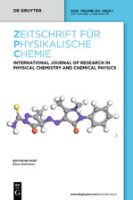
ZEITSCHRIFT FUR PHYSIKALISCHE CHEMIE-INTERNATIONAL JOURNAL OF RESEARCH IN PHYSICAL CHEMISTRY & CHEMICAL PHYSICS
Unveiling Complex Chemical PhenomenaZEITSCHRIFT FUR PHYSIKALISCHE CHEMIE-INTERNATIONAL JOURNAL OF RESEARCH IN PHYSICAL CHEMISTRY & CHEMICAL PHYSICS, published by WALTER DE GRUYTER GMBH, is a highly regarded platform for researchers in the field of physical chemistry and chemical physics. With an ISSN of 0942-9352 and an E-ISSN of 2196-7156, this journal serves as a vital resource for the dissemination of original research, critical reviews, and insightful discussions that span theoretical and experimental investigations. Recognized for its quality, it holds a Q2 classification within the 2023 quartiles of Physical and Theoretical Chemistry and ranks 72nd out of 189 in the Scopus database, placing it in the 62nd percentile. The journal’s extensive publication history, originating from 1943, showcases its long-standing commitment to advancing the understanding of complex chemical phenomena. Although it currently does not offer open-access options, it continues to attract contributions from leading experts worldwide, making it essential reading for professionals, researchers, and students dedicated to pushing the frontiers of chemical science. The journal is located in Berlin, Germany, at Genthiner Strasse 13, D-10785 Berlin, Germany.
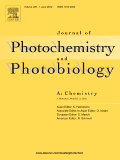
JOURNAL OF PHOTOCHEMISTRY AND PHOTOBIOLOGY A-CHEMISTRY
Exploring the Dynamics of Light-Driven ReactionsJOURNAL OF PHOTOCHEMISTRY AND PHOTOBIOLOGY A-CHEMISTRY is a prestigious peer-reviewed journal published by Elsevier Science SA, focusing on the interdisciplinary fields of photochemistry and photobiology. Established in 1987 and set to span to 2025, the journal has earned a notable reputation, currently ranking in the Q2 quartile in Chemical Engineering, Chemistry, and Physics & Astronomy, as per the 2023 metrics. With an impressive Scopus ranking, including #34 in General Physics and Astronomy and #50 in General Chemical Engineering, it represents a significant platform for researchers aiming to contribute to advancements in these critical areas. While the journal operates under a subscription model, it remains accessible through various academic databases, ensuring that cutting-edge research reaches a global audience. Researchers, professionals, and students are encouraged to explore the latest studies and reviews that explore the interactions of light with chemical processes and biological systems, positioning the journal as essential reading for anyone in the field.
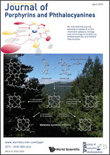
JOURNAL OF PORPHYRINS AND PHTHALOCYANINES
Illuminating the Path of Advanced Material ResearchJOURNAL OF PORPHYRINS AND PHTHALOCYANINES, published by WORLD SCIENTIFIC PUBL CO PTE LTD, is an influential peer-reviewed journal dedicated to advancing the field of porphyrins and phthalocyanines, key compounds in both chemistry and materials science. With an ISSN of 1088-4246 and an E-ISSN of 1099-1409, this journal has been a vital resource since its inception in 1997 and is expected to continue until 2024. The journal holds a respectable position in the academic landscape, categorized in the Q3 quartile for miscellaneous Chemistry journals and ranked #252 out of 408 in the general chemistry category according to Scopus, reflecting a growing impact in the field despite its current percentile standing at 38th. JOURNAL OF PORPHYRINS AND PHTHALOCYANINES seeks to publish original research articles, reviews, and critical studies that explore the synthesis, characterization, and applications of these versatile compounds, which play essential roles in numerous scientific disciplines, from catalysis to materials development. This journal is an indispensable platform for researchers and professionals seeking to disseminate their findings, engage with contemporary discussions, and stay informed about cutting-edge advancements in porphyrin and phthalocyanine research.
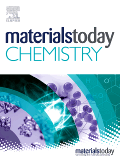
Materials Today Chemistry
Unleashing Potential Through Material ChemistryMaterials Today Chemistry, published by Elsevier Science Ltd, is a leading journal in the field of materials science, with a primary focus on innovative research and advancements in chemistry relating to materials. Operating under ISSN 2468-5194, the journal has made a significant impact in various specialized areas such as biomaterials, catalysis, colloid and surface chemistry, and polymers, achieving a Q1 ranking across these categories in 2023. With its commitment to high-quality, peer-reviewed content, Materials Today Chemistry serves as an essential platform for researchers, professionals, and students aiming to stay at the forefront of materials research. The journal provides an open access model, enabling wide dissemination of research findings and fostering collaboration among the scientific community. Its esteemed ranking on Scopus, including a remarkable percentile position in materials chemistry and catalysis, underscores its importance in advancing the understanding and application of novel materials. Whether you're delving into cutting-edge synthesis techniques or exploring the latest in materials applications, Materials Today Chemistry remains a pivotal resource for breakthrough discoveries and pivotal insights in the realm of materials science.
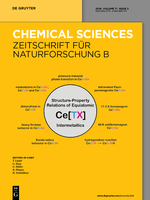
ZEITSCHRIFT FUR NATURFORSCHUNG SECTION B-A JOURNAL OF CHEMICAL SCIENCES
Innovative Insights in the World of Chemical SciencesZEITSCHRIFT FUR NATURFORSCHUNG SECTION B-A JOURNAL OF CHEMICAL SCIENCES is a distinguished scholarly journal published by Walter de Gruyter GmbH, based in Berlin, Germany. Since its inception in 1947, this journal has served as a vital platform for the dissemination of innovative research and findings in the field of chemical sciences. With an ISSN of 0932-0776 and E-ISSN of 1865-7117, it is indexed in prominent databases, reinforcing its credibility and accessibility for researchers and professionals alike. Currently categorized in the third quartile (Q3) in the field of miscellaneous chemistry according to 2023 assessments, it holds a significant position in the landscape of chemical research, ranking 270th out of 408 in general chemistry with a percentile standing of 33%. Although not an Open Access publication, its rigorous peer-review process ensures the publication of high-quality articles that contribute to advancing knowledge and innovation in chemistry. The journal’s commitment to scientific excellence makes it an essential resource for students and professionals seeking to stay updated with the latest developments in chemical sciences.
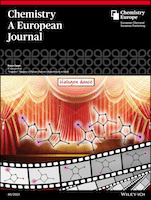
CHEMISTRY-A EUROPEAN JOURNAL
Empowering Discovery in Organic ChemistryCHEMISTRY-A EUROPEAN JOURNAL is a premier academic journal published by WILEY-V C H VERLAG GMBH, specializing in the diverse fields of chemistry and catalysis, with a distinguished focus on organic chemistry. Since its inception in 1995, the journal has established itself as an authoritative resource for researchers and professionals, currently classified in Q1 in Chemistry (miscellaneous) and Organic Chemistry, reflecting its high-quality contributions to the scientific community. With an impressive impact factor and robust Scopus rankings—#33 in Organic Chemistry and #26 in Catalysis—this journal serves as a vital platform for disseminating innovative research findings and critical advancements in chemical sciences. Although not an open-access journal, it provides valuable access options for institutions, ensuring wide reach and engagement within the scientific community. As it converges into 2024, CHEMISTRY-A EUROPEAN JOURNAL remains a key resource for anyone dedicated to advancing the frontiers of chemistry research.

Asian Journal of Organic Chemistry
Advancing the frontiers of organic chemistry.Asian Journal of Organic Chemistry, published by WILEY-V C H VERLAG GMBH, stands as a pivotal platform in the realm of organic chemistry, catering to researchers and professionals eager to share their contributions to the field. With an ISSN of 2193-5807 and E-ISSN of 2193-5815, this journal spans a commendable convergence from 2012 to 2024, featuring a notable impact factor highlighted by its Q2 ranking in the 2023 Organic Chemistry category. Positioned at rank #94 out of 211 in Scopus, the journal emphasizes the importance of quality research and innovation in organic chemistry. The lack of open access enhances the journal's selectivity, ensuring only the most rigorous and impactful studies are published. Serving as a vital resource for scholars, students, and practitioners alike, the Asian Journal of Organic Chemistry fosters the dissemination of knowledge, advances academic dialogue, and reinforces the pivotal role of organic chemistry in scientific advancement.

ChemNanoMat
Innovating Solutions for a Sustainable TomorrowChemNanoMat is a prestigious academic journal published by WILEY-V C H VERLAG GMBH, dedicated to the rapidly evolving fields of nanoscale materials and their applications in diverse areas such as biomaterials, energy engineering, and environmental sustainability. With the journal's ISSN 2199-692X and recognized quality, as evidenced by its Q2 rankings across multiple categories—including Biomaterials and Renewable Energy—ChemNanoMat serves as a crucial platform for researchers, professionals, and students to disseminate their findings and foster collaborations. Operating from Germany, the journal encourages the exploration of innovative materials solutions to meet tomorrow's challenges. While it does not currently offer open access options, it remains highly regarded in the academic community with a competitive impact factor that emphasizes its relevance and influence in guiding future research directions. Covering a broad scope from 2015 through 2024, ChemNanoMat is key for anyone invested in the advancement of materials chemistry and related scientific fields.

CHINESE JOURNAL OF INORGANIC CHEMISTRY
Advancing the Frontiers of Inorganic ChemistryThe CHINESE JOURNAL OF INORGANIC CHEMISTRY, published by the esteemed CHINESE CHEMICAL SOC, stands as a pivotal resource for researchers and professionals in the field of inorganic chemistry. With an ISSN of 1001-4861, this journal has been disseminating cutting-edge research since its establishment in 1996 and continues to influence the scientific community with its commitment to high-quality publications. Although currently classified in the Q4 quartile for Inorganic Chemistry and ranked 70th out of 79 in its category according to Scopus, the journal serves as a platform for innovative studies that push the boundaries of inorganic materials and compounds. While it operates on a traditional access model, the journal is dedicated to fostering scientific discourse and collaboration among scholars in China and beyond, making it an essential reference for anyone involved in inorganic chemistry research.